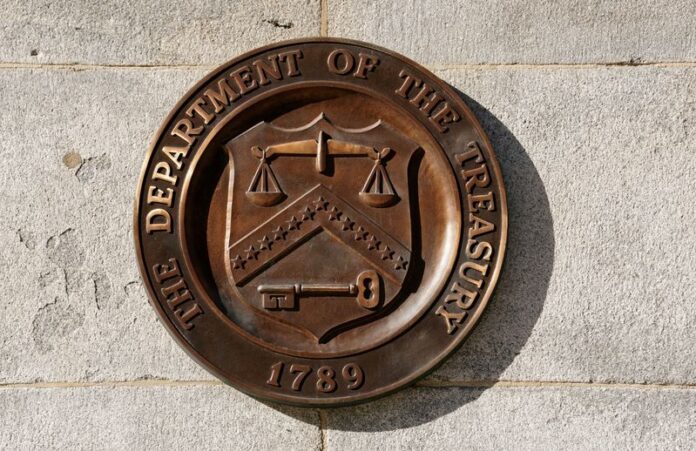By Raphael Satter and AJ Vicens
(Reuters) -Chinese state-sponsored hackers broke into the U.S. Treasury Department this month and stole documents from its workstations, according to a letter to lawmakers that was provided to Reuters on Monday.
The hackers compromised third-party cybersecurity service provider BeyondTrust and were able to access unclassified documents, the letter said, calling it a “major incident.”
Trusted news and daily delights, right in your inbox
See for yourself — The Yodel is the go-to source for daily news, entertainment and feel-good stories.
According to the letter, hackers “gained access to a key used by the vendor to secure a cloud-based service used to remotely provide technical support for Treasury Departmental Offices (DO) end users. With access to the stolen key, the threat actor was able to override the service’s security, remotely access certain Treasury DO user workstations, and access certain unclassified documents maintained by those users.”
The Treasury Department said it was alerted to the breach by BeyondTrust on Dec. 8 and that it was working with the U.S. Cybersecurity and Infrastructure Security Agency and the FBI to assess the hack’s impact.
The FBI did not immediately respond to Reuters’ requests for comment, while CISA referred questions back to the Treasury Department. A spokesperson for the Chinese Embassy in Washington did not immediately respond to a request for comment. Beijing routinely denies responsibility for cyberespionage incidents.
BeyondTrust did not immediately return messages seeking comment, but on its website, the company said it had recently identified a security incident that involved a limited number of customers of its remote support software. The statement said a digital key had been compromised in the incident and that an investigation was under way.
Tom Hegel, a threat researcher at cybersecurity company SentinelOne, said it appeared the security incident described by BeyondTrust aligns closely with the reported hack at Treasury, although he cautioned that the company itself would need to confirm any connection.
“This incident fits a well-documented pattern of operations by PRC-linked groups, with a particular focus on abusing trusted third-party services – a method that has become increasingly prominent in recent years,” he said.
(Reporting by Raphael Satter in Washington, AJ Vicens in Detroit, and Akash Sriram in Bengaluru; Editing by Shinjini Ganguli, Tasim Zahid, Leslie Adler, Alistair Bell and Rod Nickel)

